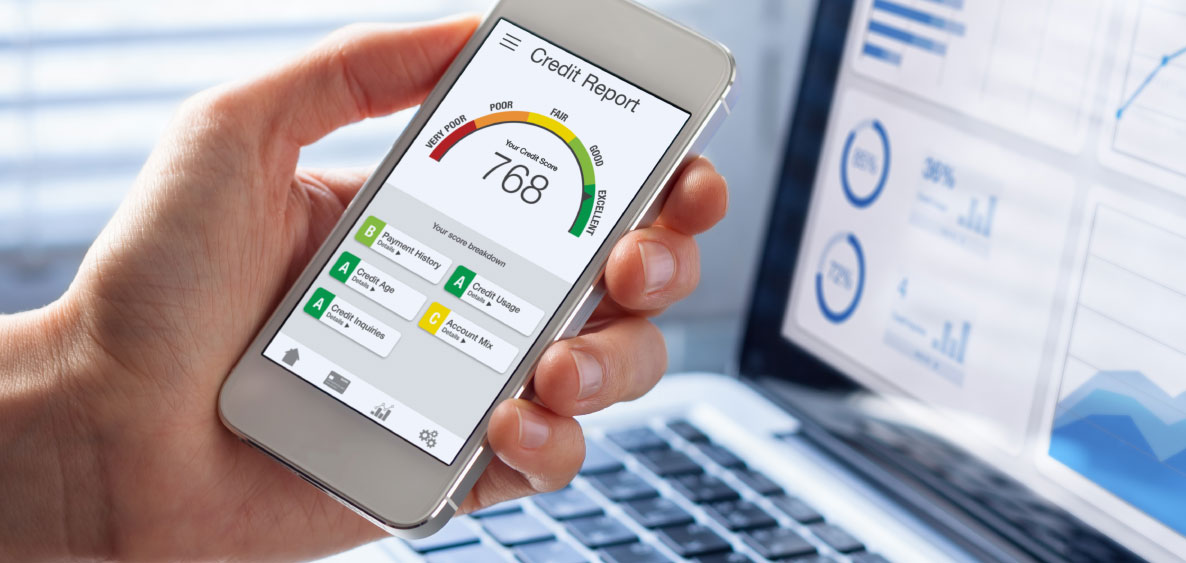
Financial well-being April 27, 2015 By
Have you ever wondered what makes up your credit score? If so, you’re not alone. Credit scores are calculated from several different pieces of data in your credit report. When you apply for a loan or for credit, lenders want to know your credit score to help calculate your ability to repay the loan, or the risk associated with giving you the loan. Usually, the higher the score, the lower the risk.
Your credit score is affected by both positive and negative information in your credit report. Late payments lower your score, but establishing a good history of on-time payments can raise your score. Based on this activity, as the information changes in your report, so does the score. For a credit score to be calculated, the credit report must contain enough information on which to base a score. This means you must have at least one account that has been open six months or longer.
There are three credit bureau agencies that compete to capture, update, and score credit data and histories: Equifax, TransUnion, and Experian. While most of the information collected is similar, there are differences. All of your credit information may not be reported to all three credit bureaus. This information is supplied by lenders, collection agencies, and court records. Don’t assume each credit bureau has the same information pertaining to your credit history. The range of your score will differ from one bureau to the next with credit scores ranging from 350–850.
There are five categories used to calculate your score:
- Payment History – The first thing loan officers look for is if you have paid your loan payments on time. Contributing to 35 percent of your score calculation, this category has the greatest effect on improving your score. Past problems, like missed or late payments, are not easy to fix.
- Amounts Owed – This category illustrates your outstanding loans/credit and balances and/or available credit limits.
- Length of Credit History – This measures how long your accounts have been established. The longer, the better.
- New Credit – Research shows that opening several accounts in a short period of time represents a greater risk, especially for people who do not have a long credit history.
- Types of Credit Used – Score calculations are also determined by reviewing your mix of credit cards, retail accounts, installment loans, finance company accounts, and mortgage loans.
The graph shows the breakdown by weight each category has on your credit score:

As you evaluate these five categories, one or more might catch your attention as an area of opportunity to increase your score. To learn how to improve in one or more of these areas, check out the “Steps to Increase Your Credit Score” checklist below. By knowing what makes up your score and then managing it using our checklist, you will improve your credit score over time.
Steps to Increase Your Credit Score Checklist
Ensure a Positive Payment History
- Pay your bills on time. Delinquent payments and collection items have a major impact on your credit score.
- Get and stay current on your bills. If you have missed payments, get current and stay current. The longer you pay your bills on time after being late, the more your score should increase. Older credit problems count for less, so the impact of past credit problems on your score fades as time passes and as recent good payment patterns show up on your report.
- Know the seven year rule. Be aware that paying off a collection item will not remove it from your credit report. It will stay on your report for seven years.
- Ask for help. If you are having trouble making ends meet, contact us or your local loan officer for support. While asking for help won't rebuild your credit score immediately, beginning to manage your credit and paying on time will increase your score over time.
Manage Amounts Owed
- Keep credit balances low. High outstanding debt can negatively affect your credit score. Keep balances low on all credit cards and other revolving credit.
Extend Length of Credit History
- Limit the amount of accounts you open at one time. If you have been managing credit for a short time, don't open a lot of new accounts too rapidly. This approach can actually backfire and lower your score.
Be Smart About New Credit
- Rate shop quickly. Do your rate shopping for a given loan within a focused period of time, such as 30 days. FICO scores distinguish between a search for a single loan and a search for many new credit lines, in part by the length of time over which inquiries occur.
- Re-establish your credit history. If you have had credit problems in the past, move past them by managing them going forward. Opening new accounts responsibly and paying them off on time will raise your credit score in the long term.
- Monitor your score. Requesting and checking your own credit report won't affect your score as long as you order your credit report directly from the credit reporting agency or through an organization authorized to provide credit reports to consumers.
Know How to Use Different Types of Credit
- Apply for and open new credit accounts only as needed. Don't open accounts just to have a better credit mix—it probably won't raise your credit score.
- Have credit cards, but manage them responsibly. In general, having credit cards and installment loans (and making timely payments) rebuilds your credit score. Someone with no credit cards, for example, tends to be a higher risk than someone who has managed credit cards responsibly.
- Know that closing an account doesn't make it go away. A closed account will still show up on your credit report.



